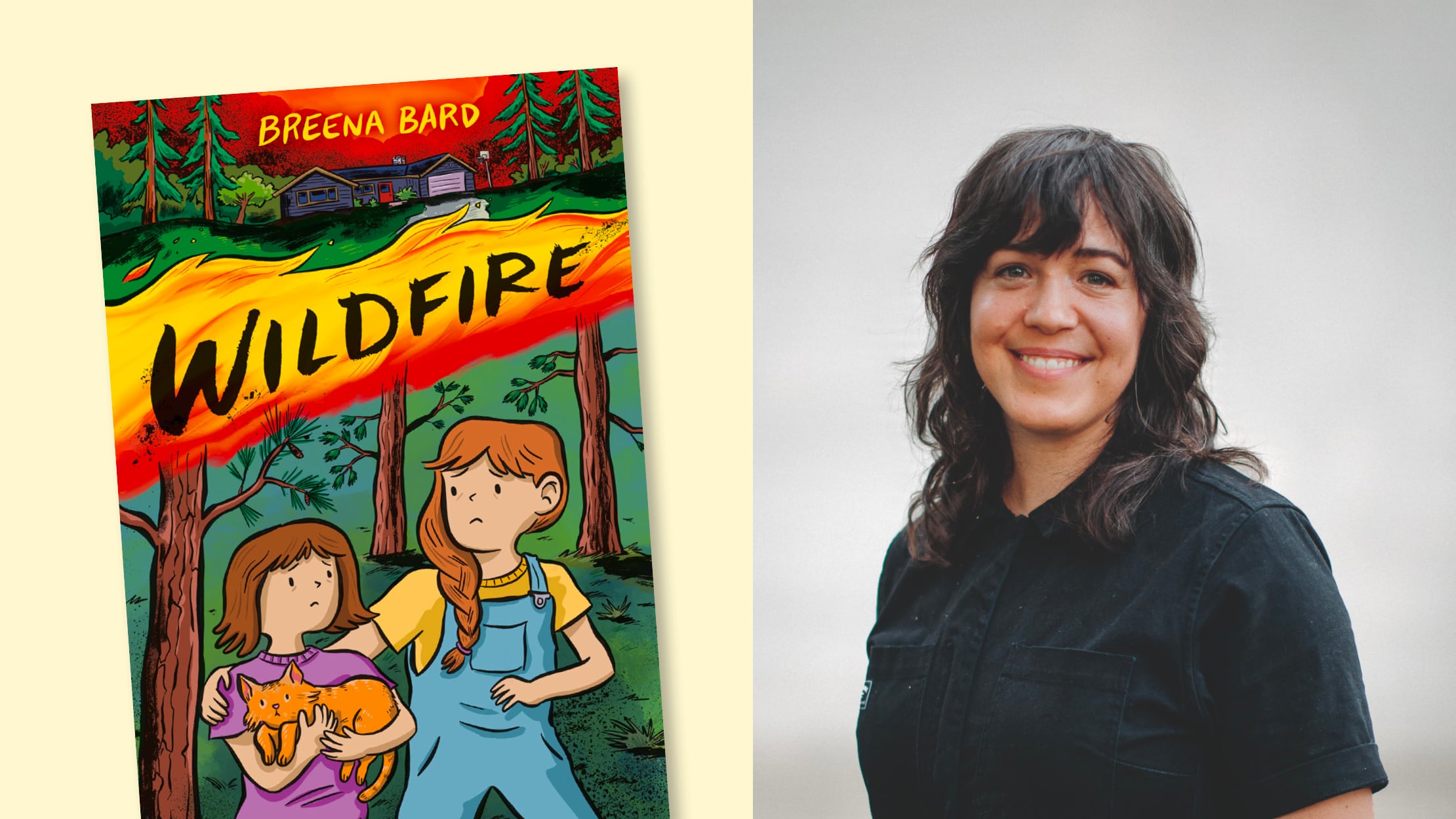Julianna is a middle schooler who lives in rural Oregon. She loves being in 4-H and caring for her goats and chickens. She’s got cool parents and a kid sister. Life is good. But as often happens for middle schoolers, a lot of things start to change.
One day, Julianna comes across some boys she knows who are hanging out in the forest. The boys are no longer interested in 4-H; they’ve moved onto “cooler” pastimes. Now they’re drinking suspicious-looking beverages and rooting around in what turns out to be a bag full of fireworks.
It’s a classic “you’ve changed” coming-of-age moment, when kids start choosing different paths and pushing unfamiliar boundaries. The boys that Julianna comes across start going toward a more destructive route—literally. Their fireworks end up starting a wildfire, causing Julianna and her family to lose almost everything they have and to relocate to Portland.
That’s where you’ll find Breena Bard, author and illustrator of Wildfire, a graphic novel about how one girl experiences the traumatizing effects of wildfires and how she learns that they’re caused and exacerbated by more than just one-off acts of human negligence.
It was after her graphic novel Trespassers won the 2022 Oregon Book Award for Graphic Literature that Bard set out to tackle climate change.
“If I can tell a story that has a compelling narrative and at the same time can cause the reader to think a little bit deeper—and maybe there’s some allegory built in, or maybe it’s just a subject matter that invites deeper exploration—that’s a definitely a goal of mine as a writer,” she tells WW.
Bard had written a self-published graphic novel called Picket Line in 2011, which looked at environmental protests surrounding the redwood forests. Amid the thick smoke of the 2020 wildfires, Bard’s editor pushed her to write another book in the environmental realm.
“The story wrote itself very quickly, partly because of what we were all thinking about and talking about at the time,” Bard says. “I just had to kind of buy into the woo-woo idea that characters kind of live inside of us and are part of us. So that was kind of the origin of Julianna and all of the main characters.”
After the fire, Julianna’s parents do their best to resettle in a new city, but Julianna keeps her emotional cards close to the chest. Angry and traumatized after being forced to flee her home, she channels much of her rage toward the boys who started the fire, but soon discovers there’s more to the story than she realizes.
In one scene, Julianna joins the school’s conversation club (dubbed “Club Connie”) and hears all the other kids naming the reasons they decided to join: to save the planet, to reduce pollution, because it’s fun. “Taking care of the planet doesn’t have to be a drag,” says her new friend Ezra while the group is doing a cleanup day at the park.
“These are things we are going to have to do to maintain a livable planet,” Bard says of activities like trash pickup days. “And if you have to do it, why not make it fun? And I think kids are great at that. Kids are great at play and just being silly, and that’s why I wanted to show the scenes with the club—to show that yeah, it’s work, but you can have fun and you can personalize it. It doesn’t have to be a drag.”
Fueled by that philosophy, Wildfire explores the nuances of climate change, presenting tangible and visual ways kids and adults alike can do their part.
“I want to give kids a chance to see some of their own anxieties and fears in a relatable character,” Bard says. “And also to see a way forward and a way to be involved in their own future and in the future of this planet.”
SEE IT: Breena Bard appears in conversation with Jonathan Hill at Powell’s City of Books, 1005 W Burnside St., 800-878-7323, powells.com. 3 pm Saturday, Sept. 30. Free.
